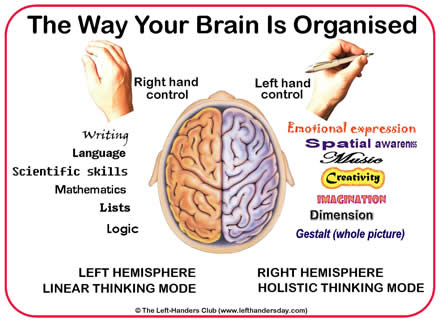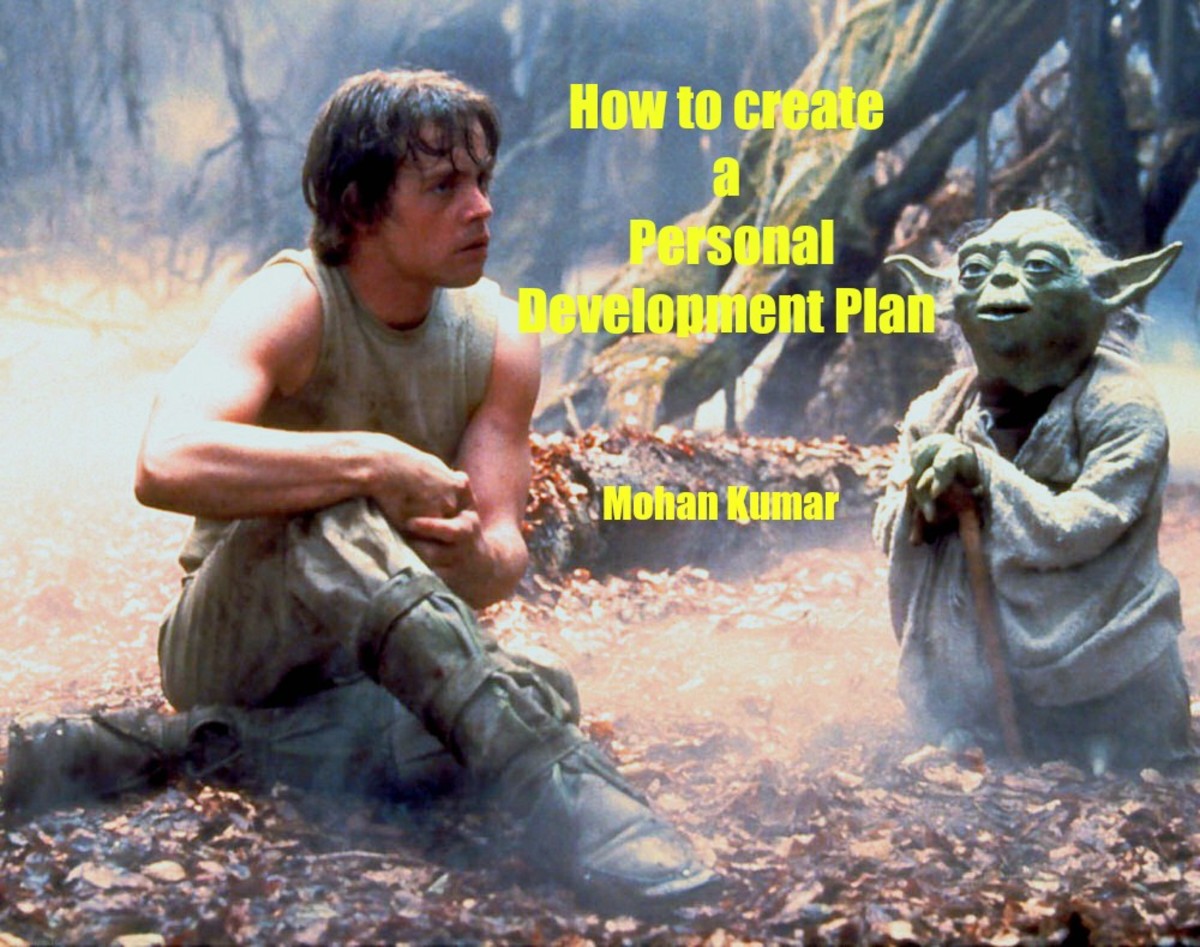How the Left and Right- brained Thinking Affect Emotional Intelligence (Part 3)

A case study has been done by Fiona Graetz (2002) that highlighted the relationship between the role, skills and level of emotional intelligence of organizationalleaders vis-à-vis the capacity to stimulate and engender strategic thinking within an organization.
It suggests that the elements of left-brain thinking reflects the planning side of strategy making (need for logic, analysis, attention to detail, focus on meeting deadlines, etc.), while right-brain thinking reflects the thinking (creative, inquisitive, intuitive, entrepreneurial) component of strategy making (Graetz et al., 1998; Graetz, 1996). To adequately meet the three criteria of creativity, plausibility and consistency, balanced input is required from both left- and right-brain thinking styles. Emotional intelligence clearly reflects a "whole-brained" approach to thinking and behaving.
In other words, an emotionally intelligent person who embodies all these attributes is adept at drawing on the four different quadrants of the brain depending on the demands of situational context. Therefore, to nurture strategic thinking capabilities amongst organizational members, leaders must help them to develop emotional intelligence to enhance both left-brain and right-brain thinking skills.
- Emotional Intelligence Can be Learned (Part 4)
Unlike IQ, emotional intelligence can be learned. However, emotional intelligence training is very demanding on trainers. Competent EI trainers must skillfully facilitate to draw out discussion about...
- Emotional Intelligence Can be Learned (Part 4)
Unlike IQ, emotional intelligence can be learned. However, emotional intelligence training is very demanding on trainers. Competent EI trainers must skillfully facilitate to draw out discussion about... - Emotional Intelligence at Workplace (Part 5)
Learning has become one important aspect of organizational life may it be at individual, group or organizational levels. Learning is an emotional process - learning under the guidance of a loved teacher or a... - Psychoanalysis of Emotion Management at Work (Part 6)
Emotions impervious to learning Psychoanalyst approach postulates the relative imperviousness of certain emotions to learning. This is especially pronounced and damaging in serious cases of neurosis, where... - Emotional Intelligence at Work (Part 1)
Emotional intelligence at Work All organizations are made up of People and People are by nature, Emotional beings. Increasingly, management has sought to harness emotion to increase work motivation,... - Five components of Emotional Intelligence (Part 2)
Low emotional intelligence brings a plethora of negative emotions, like fear, anxiety, anger and hostility which results in using up a lot of energy, lower morale, absenteeism, apathy, and are an effective...









